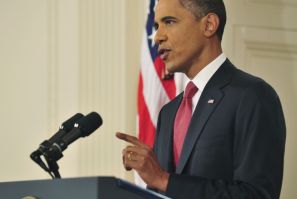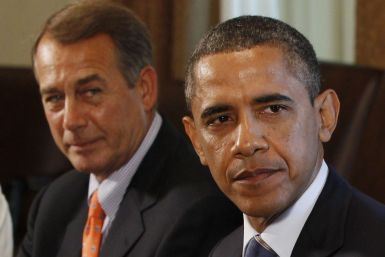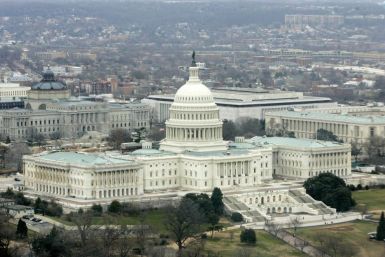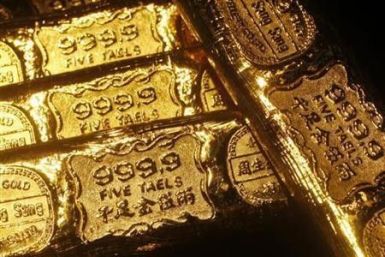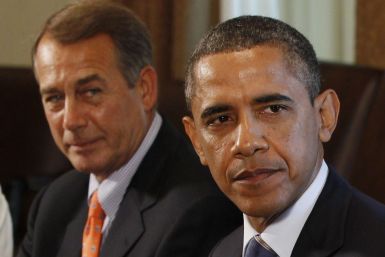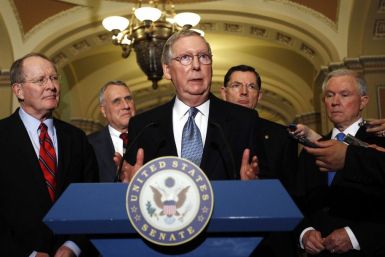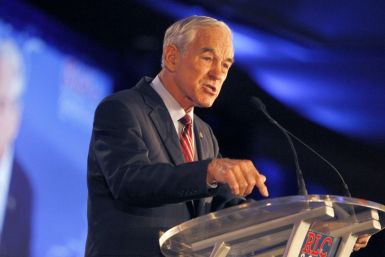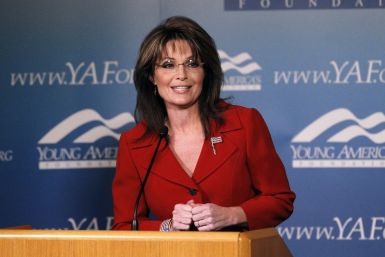Simply, Director George Lucas' tribute to his teen years in the car culture of 1960s Modesto, California is a masterpiece, and is easily worth its DVD price.
President Barack Obama, D-Ill. and Speaker John Boehner, R-Ohio moved closer toward a landmark debt deal late Thursday -- one that would avoid a U.S. default and implement major tax code changes, if approved. However, aides to both were lowering expectations, given the importance of the talks, so as to not jeopardize delicate negotiations within each caucus.
If the economy does not show signs of sustainable improvement this quarter, the Federal Reserve should dig into its toolbox to find new ways to help it along, a top Fed official said on Thursday.
If the economy does not show signs of sustainable improvement this quarter, the Federal Reserve should dig into its toolbox to find new ways to help it along, a top Fed official said on Thursday.
New York Federal Reserve Bank President William Dudley received a waiver allowing him to keep investments in firms the Fed was rescuing at the height of the financial crisis when he was a top staffer, a congressional watchdog agency found.
As major institutions around the world continue to deal with the impact of the financial crisis, regulators will soon be laying down ground rules to buttress against a potential collapse of financial firms large enough to shake global markets, Federal Reserve Chairman Ben Bernanke said Thursday.
Insurance giant MetLife Inc. might put its banking operations up for sale in order to focus more on its insurance side.
Wells Fargo will pay an $85 million fine for mortgage abuses, but the company is not admitting wrong doing.
A top Federal Reserve official said on the Thursday the U.S. economy should grow at a modest pace for the next several years, but issued a harsh criticism of the U.S. central bank's just-concluded bond buying program.
A U.S. Government default must be avoided by Washington lawmakers at all costs, former U.S. Treasury Secretary Lawrence Summers underscored, as it would trigger a financial panic worse than that precipitated by the collapse of Lehman Brothers in late 2008.
Spot gold prices touched a new record high of $1598.41 on Monday, extending the longest rally in about 40 years. The latest wind in the tail came from worsening worries of a European sovereign crisis and the painful stalemate in the US debt ceiling talks that has raised the specter of an unprecedented Treasury default.
Sunday's Day 8 of the debt deal talks saw both sides express confidence that a grand bargain deficit reduction package would be reached, even as a parallel camp of lawmakers worked on a last-chance option containing a more-modest reduction; however, there was little new evidence Sunday that a deal was at hand.
Debt deal talks, Day 6: Unless the Tea Party compromises, a U.S. Government default is likely. For many voters, the Tea Party stance appears extreme, irresponsible, even irrational. But for Tea Party supporters, it’s a logical and necessary stance, when any compromise with a Democratic president is viewed as a defeat.
If the Fed wades further into muddy stimulus waters, that will set the stage for a certain gold boom in the short to medium term. Historically, a dollar sell-off has been the biggest force behind a gold boom. If the Fed takes recourse to another round of easing in pursuit of its goal of propping up job creation and real growth, it will inadvertently cause a dollar sell-off and trigger, in turn, a gold super rally.
The setting is perfect for another gold boom cycle to kick in, perhaps pushing the yellow metal into a super cycle. There are several factors aiding gold's further push into higher price records, greater investment worth and long-term reign as a de facto currency. There are all sorts of classic factors supporting gold all the way, like the demand from China and India bursting at seams, continued worries for the US dollar and the worrisome prospect of sovereign default in some European countri...
The US economy is at an inflection point after the end of the second round of Quantitative Easing (QE2). Two rounds of monetary and fiscal stimulus since 2008 have had only limited impact on growth or unemployment. The question is,'What next?' will there be another round of monetary and fiscal policy easing? Analysts at American Enterprise Institute for Public Policy Research (AEI) are of the opinion that fiscal and monetary policies have reached their limits.
Credit ratings agency S&P Friday, like Moody's Thursday, warned that the U.S.'s credit rating could be downgraded, if an agreement on raising the debt ceiling is not reached soon. Meanwhile, the Reid/McConnell 'last chance' debt deal plan appeared to gain momentum Thursday, raising hope that a debt deal agreement will be reached soon.
China Thursday called on the United States to adopt responsible policies and measures to guarantee the interests of investors -- a communique that highlights the rising concern about a possible U.S. Government default. Meanwhile, modest debt talk progress was noted on Day 5, with bipartisan agreement on at least $1.5 trillion in spending cuts over 10 years.
The following are highlights of Federal Reserve Chairman Ben Bernanke's testimony on Thursday to the Senate Banking Committee as part of his semiannual testimony on the U.S. economy and monetary policy. Bernanke repeated prepared testimony he delivered to a House of Representatives panel on Wednesday.
Longtime Federal Reserve antagonist U.S. Rep. Ron Paul, R-Texas, was at it again on Wednesday, criticizing Federal Reserve Chairman Ben Bernanke, the head of world's most powerful central bank, for a faltering economic recovery and suggested the country would be better off investing in gold.
Former Gov. Sarah Palin, R-Alaska, redeployed her controversial gunplay rhetoric Wednesday, saying conservatives should not compromise and agree to raise the U.S. debt ceiling. Palin also said she isn't convinced that a U.S. Government default would be a calamity.
Federal Reserve Chairman Ben Bernanke renewed his promise on Thursday that the central bank could put more monetary stimulus into play if the economic recovery stumbles.



